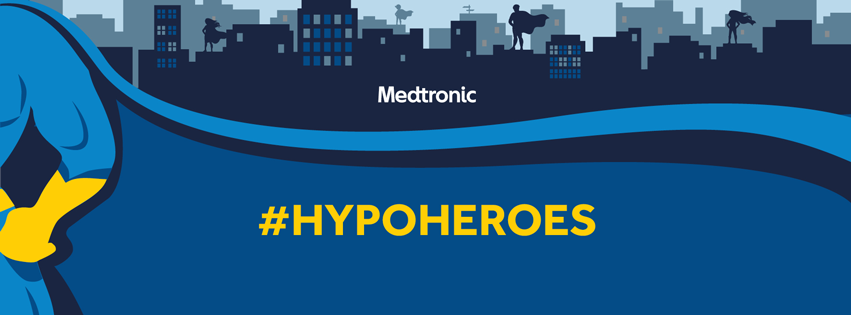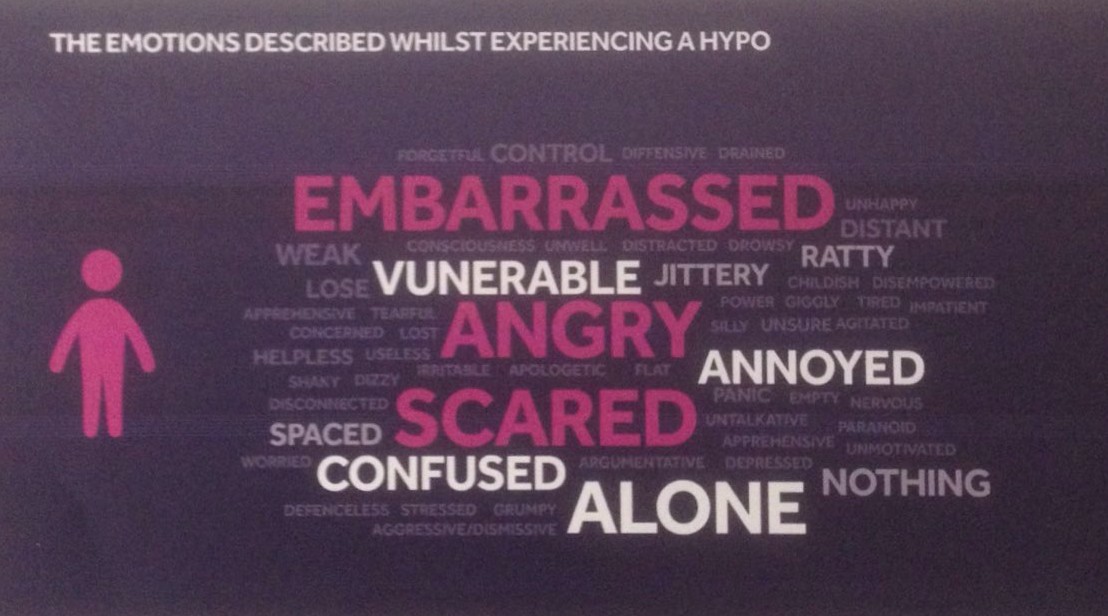Hypos, or low blood sugars happen! They do. And they happen no matter how much time and effort I put into trying to avoid them. But have you ever asked yourself “How do my hypos affect everyday life and how do I feel about that?”
“More than 9 out of 10 people alter their insulin doses out of fear of hypos”
“50% of people worry about hypos often or all of the time”
Before last weekend, I had never asked myself either of those questions. And then, I attended Medtronic Europe’s first Diabetes Community Exchange conference in Barcelona, Spain, where one item on the agenda featured research on this very topic.
To be honest, I was completely sceptical about this hypo awareness programme because I felt it was a bit like preaching to the choir. I mean, dealing with hypos is one of the first things that people with type 1 diabetes are warned taught about when we are first diagnosed. And so, I thought “Of all the things to spend money on?”.
BUT!!! When I saw the research surrounding how hypos make us feel, it prompted me to explore my own feelings around hypos. I realised I had never asked myself either one of those questions before. And I'm quite surprised at what I discovered. I hate them! And I hate the way they make me feel.
Not the symptoms of a hypo but the emotions I feel as they happen or afterwards, the;
- Frustration at having to stop what I'm doing or break concentration to treat them. - Fear and anxiety I feel at the prospect of them even though, I find them easier to fix than high blood sugars. - Resentment when they interrupt a family day out. - Resentment that I had to tell my then 8 year old son, rather sternly, to please stop asking me questions. I'm low and need sugar. In effect I had to tell him to go away. - Hate that I felt I had to teach my children as toddlers how to call the emergency services just in case mom doesn't wake up. - Anxiety when we decide to go for a family walk in the park or woods and how hypos always, still seemed to catch me out. - Hate that it makes family and close friends feel uncomfortable. (I once had a hypo in my endocrinologist’s office and even she panicked. Think about it - how often has she seen a hypo in real life.) - Hate at how some friends react in an unhelpful way and can be hurtful. I tend to still deal with my hypos discreetly in these situations. - I used to think hypos didn't affect anyone but me but that's a big fat lie and I hate that.
Now that I knowing how I feel about hypo I think it makes me a stronger person to deal with them. I can prevent these negative feelings from festering and becoming a monster. And it does feel good to blow off some steam.
The #HypoHeroes campaign and dedicated website is full of useful information but it doesn't just focus on the physical aspects of hypos; it incorporates the emotions around experiencing hypos, especially in the “Behind the Mask” zone. It has some real life videos of people talking about what happens when they or their child with type 1 diabetes has a hypo. It also offers helpful information to minimise the impact on your life. This website is very well researched, very well thought out and it is supported by IDF Europe. #HypoHeroes gets its official launch on World Diabetes Day, November 14th. Well done Medtronic!
It's also worth mentioning that if you nominate a hypohero a donation will be made to IDF Europe from Medtronic, who will use it to support people with diabetes all over europe.
Medtronic Europe’s Diabetes Community Exchange conference included diabetes bloggers from all walks of life representing Austria, Belgium, France, Germany, Ireland (that’s me), Netherlands, Russia, Sweden, Switzerland, England and Wales. All amazing bloggers, diabetes community leaders and advocates. And one actual D-friend I knew beforehand; I got to hang out with our recent Thriveabetes speaker, Gavin Griffiths, properly. He got to meet the not-so-stressed-completely-exhausted me:-D
Medtronic get a very large, bright gold star for a very well organised event, for being so considerate in getting all of us there and for taking care of us so well. For me, there was a good balance of time to decompress privately and social time to get to know the other bloggers. They even included a workshop specifically for us to think about how we cope with our own diabetes. As bloggers, we tend to focus on what other people need for their diabetes rather than what we need to take care of us and our own diabetes. This workshop was provided by Rosie Walker from Successful Diabetes.
As to be expected, when a company sponsors an event, there is a product pitch, but they did leave it til last and it wasn't compulsory to attend. It was the new stand alone, connected Guardian Connect which I will feature in a separate post.
DISCLAIMER; Medtronic paid for all of my travel expenses from Ireland to attend but did not influence my opinions. My invitation came through IDF Europe and I am very grateful and proud to have been their nominee.


